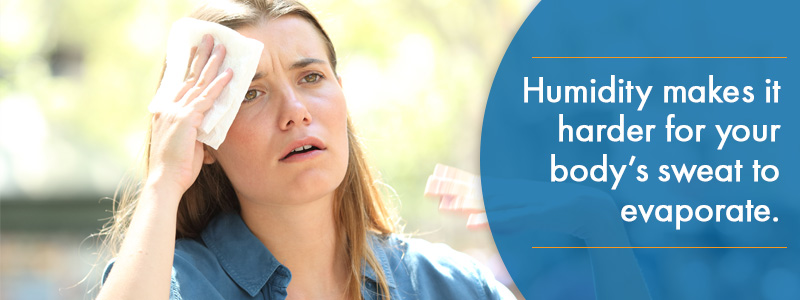Summer is officially in full swing, and for people in most regions of the United States, that means higher temperatures. Sometimes the heat is not even the worst part. Along the coastal regions of the U.S. humidity is more to blame for uncomfortable weather than the heat. But just what is humidity and why does it make us so hot? Read on to learn more about this weather condition and what you can do to combat it.
Understanding Humidity
If you learned about greenhouse gases in science class, then you are halfway to understanding why humidity makes it feel so much warmer. On hot days, water is evaporated into the air. The water becomes a vapor that traps heat and makes the air feel “thicker.” There are two kinds of humidity: absolute humidity and relative humidity.
- Absolute humidity: This is calculated as the amount of water vapor divided by the volume of dry air at a specific temperature.
- Relative humidity: When you have found absolute humidity for a given temperature, you can use that to determine relative humidity, which is the ratio of the current absolute humidity to the highest possible absolute humidity.
To see how humidity affects your body and its temperature regulation, check out the paragraph below.

Why does humidity make you feel hotter?
The answer to this question has a lot to do with your body’s natural ability to produce sweat. After all, sweat is your body’s way of cooling down. However, it is not the actual act of sweating that cools you down; instead, it is the evaporation process that leaves you feeling comfortable. When temperatures are high and humidity is low, your body produces sweat that evaporates into the dry air. This means your body is cooling naturally as it should be. When the relative humidity is high, the air is already saturated with moisture, making it harder for your sweat to evaporate. This causes you to feel warmer.
